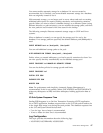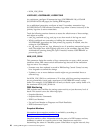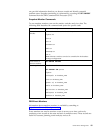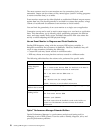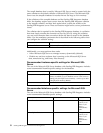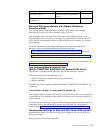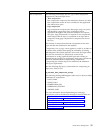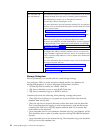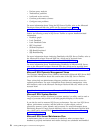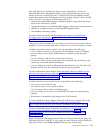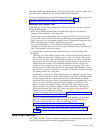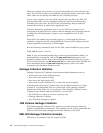
Feature Description
Data Compression The following list describes the two type of data compression
supported by Microsoft SQL Server:
v Row compression
Row compression compresses the individual columns of a table.
Row compression results in lower overhead on the application
and utilizes more space.
v Page compression
Page compression compresses the data pages using row, prefix,
and dictionary compression. Page compression affects
application throughput and processor utilization, but requires
less space. Page compression is a superset of row compression,
which implies that an object or a partition of an object that is
compressed using page compression is compressed at the row
level too.
The amount of compression achieved is dependent on the data
types and the data contained in the database.
Compression, row or page, can be applied to a table or an index in
an online mode without interrupting the availability of Sterling
B2B Integrator. The hybrid approach, where only the largest tables
that are few in number, are compressed, results in best
performance in saving significant disk space and resulting in
minimal negative impact on performance. Disk space requirements
should be considered before implementing compression.
Compressing the smallest objects first minimizes the additional
disk space requirements.
Run the following SQL query to determine how compressing an
object may affect its size:
sp_estimate_data_compression_savings
The following Sterling B2B Integrator tables may be the most likely
candidates for compression:
v DATA_TABLE
v TRANS_DATA
v CORRELATION_SET
v WORKFLOW_CONTEXT
v ARCHIVE_INFO
For more information about implementing row and page
compression, refer to the Microsoft Developer Network Web site:
v https://msdn.microsoft.com/en-us/library/cc280576
%28v=sql.105%29.aspx (Row compression)
v https://msdn.microsoft.com/en-us/library/cc280464
%28v=sql.105%29.aspx (Page compression)
v https://msdn.microsoft.com/en-us/library/cc280449
%28v=sql.110%29.aspx (Data compression)
Performance Management 55



